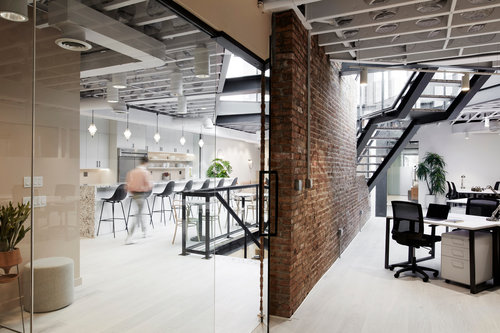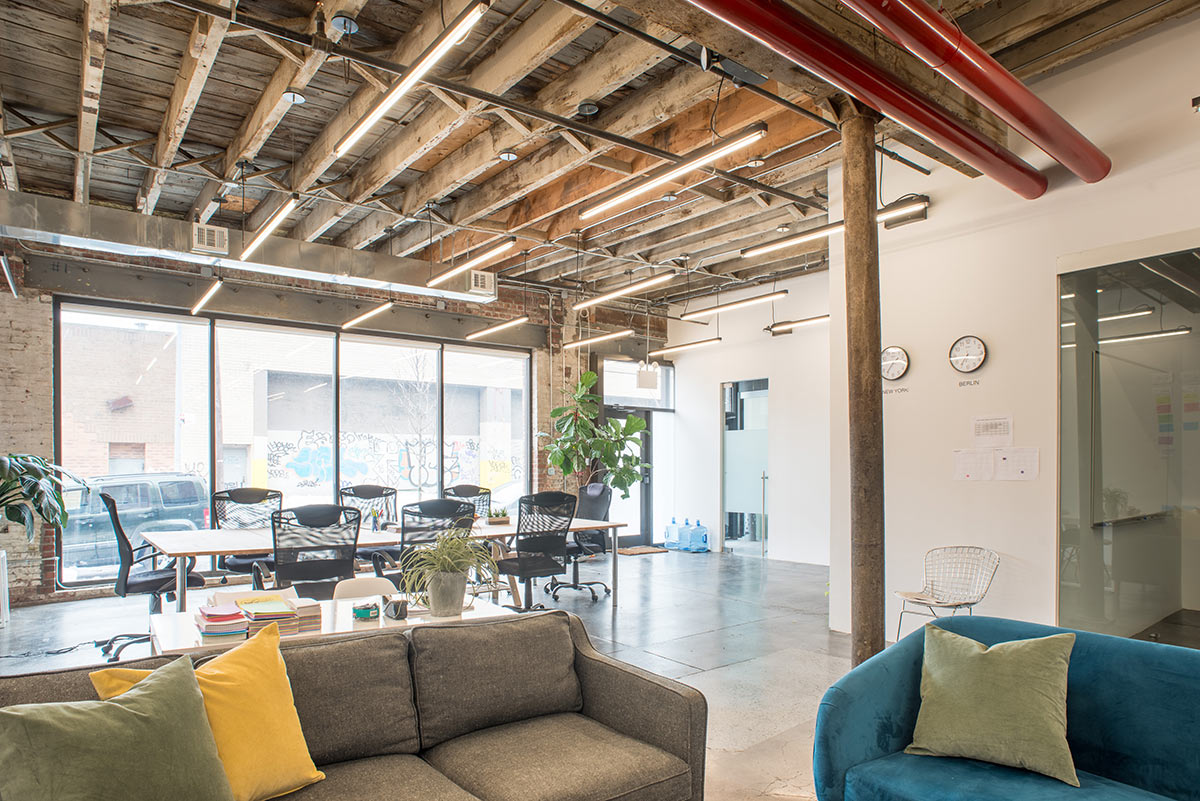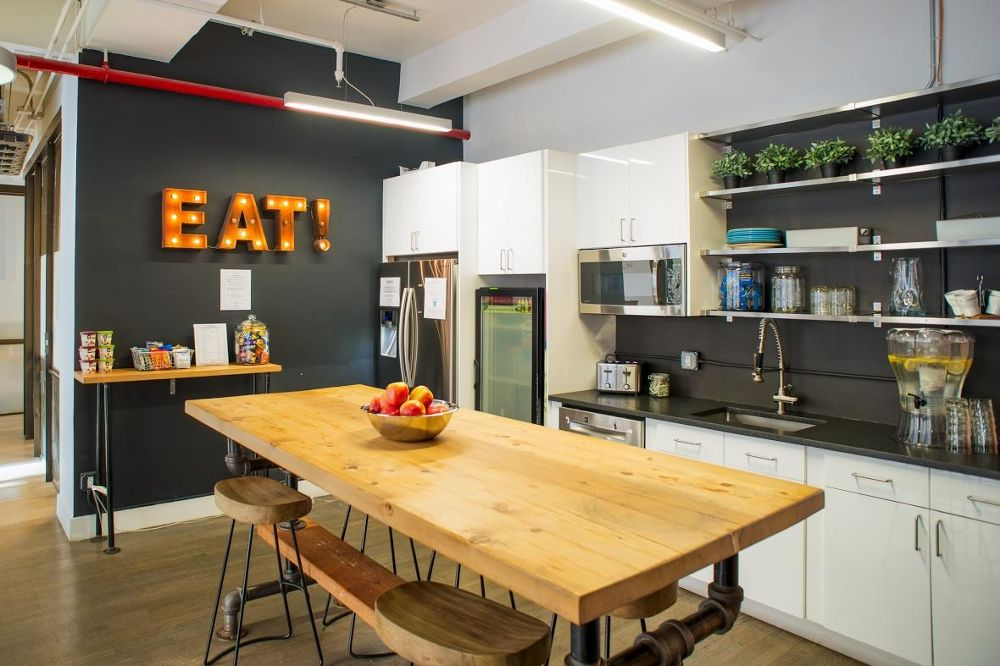By Bond Collective Staff
There are few things more exciting than thinking about how to start a small business. But a great idea will only get you so far. At some point, you have to focus on the details that will transform your idea into reality and get your product or service to market.
In this article, our experts organize these essential details into a step-by-step guide that will help you build a strong foundation for your small business.
How To Start A Small Business
1) Work In A Similar Business
One of the best ways to decide if running a small business is right for you is to work in a similar industry for a while. You’ll discover if it is, indeed, the right fit for you.
You’ll also gain invaluable experience in such foundational business practices as:
-
Customer service
-
Networking
-
Marketing
You can then transfer these real-life lessons to your own small business and give your unique venture the best chance for success.
2) Research Federal, State, And Local Laws
It’s imperative to research federal, state, and local laws when thinking about how to start a small business. While most laws apply to all businesses, some regulations affect certain industries more acutely.
For example, is your small business classified as a product or a service? Do you have to charge and report sales tax? Are there advantages to establishing a C-corp, an S-corp, or a sole-proprietorship?
When you understand the laws that apply to your particular small business in the early stages of development, you can avoid the difficulties and problems that come from trying to go back and correct things later.
Many regulations differ from state to state and city to city, so be sure to research based on where your business will be located. If it all seems like too much to handle, you might be better off working for an established small business.
3) Identify Your Target Market
One of the first steps you should take when you’ve decided to start a small business is to identify your target market. This is done through a process called “market research” — not to be confused with “marketing research.”
Market research provides insight into:
-
Customer demographics (sex, age, lifestyle, etc.)
-
How those potential customers will react to your product or service
-
Factors that influence customer buying decisions
-
Demand for what your business has to offer
-
Appropriate price points
-
And much more…
For an in-depth discussion about identifying your target market, take a few moments to read the informative articles below. Whether you’re thinking about how to start a small business or a startup, the concept is the same.
-
Market Research For Startups: The Ultimate Guide For Entrepreneurs
-
Estimating Market Size: The Complete Guide For Startups And Small Business
4) Build A Business Plan
Every business needs a plan. Your small business is no different. Be sure to include information about:
-
Budget
-
Accounting practices
-
Target market
-
Price structure
-
Advertising and marketing
-
Equipment needs
-
Employee needs
-
Mission statement
When complete, your business plan will show you exactly what you need to do to get your small business up and running. It will also provide a basis through which you can secure funding (if necessary) later on in the process.
5) Establish A Business Strategy
Contrary to popular belief, every business — small or large — needs some type of strategy if it wants to succeed. If you choose to forgo this crucial step, you’re setting your small business up to fail.
Business strategy is the middle tier — with corporate strategy above it and functional strategy below it — in what should be an all-encompassing organizational strategy that governs all of your company’s activities.
The benefits of building a business strategy early on are legion. At the most basic, though, a robust business strategy:
-
Provides direction
-
Reveals priorities
-
Facilitates decision making
-
Simplifies adaptation
These variables can help you get a head start on the competition.
6) Secure Funding
Depending on the small business you intend to start and your own financial situation, you will need to secure some level of funding in order to get the ball rolling.
Whether you need to purchase computers, office supplies, or parts for your initial product, the financing will most likely come from a bank or investors.
Alternatively, you can investigate government programs and grants designed especially for small-business owners like you.
For more details about securing funding for your small business, read these helpful articles:
-
Startup Funding: Different Funding Options And How To Secure Them
-
The 14 Best Ways To Raise Money For Your Startup Or Small Business
7) Find The Right Location
The right location for most small businesses once meant a storefront on a busy street. Now, though, many businesses are extremely successful without a physical location of any kind.
Which “location” is right for your company? That’s something you’ll need to decide in the early stages of planning.
Even if your small business operates online without a brick-and-mortar location, you and your team need a place to work that is comfortable, inspiring, and facilitates productivity.
8) Market Your Business Immediately
Don’t wait until “opening day” to advertise your small business. When you finally commit fully to the new endeavor (around steps four and five), start spreading the word about your product or service.
If you can do this without spending hard-earned capital (e.g., via networking, by posting flyers, through social media, and other guerilla tactics), you’ll position your small business for success.
9) Build Your Workflow Around Technology
Technology in the workplace is transforming the way businesses of all sizes manage their people, their process, and their product
You can ensure that your team — and your business — has what it needs right from the start by building your workflow around whatever technology is essential for your industry.
When building your processes, it’s better to overestimate your needs than to underestimate your needs. You can always go back and eliminate unnecessary or redundant technology later on.
The act of simplifying your workflow after the fact is easier and less expensive than trying to incorporate new technology into an existing process.
10) Hire A Team
Hiring a team to work within your small business may seem like a daunting task — more daunting, in fact, than any other step on this list.
But with help from the technology you incorporate in your small business, you’ll find that it’s not as challenging as you might think.
Here are three strategies to help you hire the best team for your small business:
-
Seek diversity
-
Find team members who fit into your company culture
-
Don’t be afraid to hire skill over experience
Once you’ve assembled the perfect team, it’s time to get to work growing your small business and guiding it toward success.
Accelerate Your Small Business With The Best Work Environment
Whether you’re in the early stages of thinking about how to start a small business or you’re well along in the process, creating the best work environment will make everything you do easier.
Avoid the stress, strain, and expense of building an office from the ground up by basing your team in a coworking space like those at Bond Collective.
It doesn’t matter if you’re a team of one or a team of 50 or more, Bond Collective has the right work environment for your small business.
All of Bond Collective’s shared office spaces incorporate inspiring design elements like natural light, open floor plans, vivid colors, multipurpose work areas, and a whole host of other design factors that will motivate your team to succeed.
And at Bond Collective, the benefits don’t stop with the office space. In addition to our unique work settings, members also enjoy amenities such as:
-
Lightning-fast Wi-F
-
Guest reception and greeting
-
Conference Rooms
-
Daily on-site cleaning
-
Black-and-white printing
-
Private-label mail service
-
Concession food market
-
Networking and curated events
-
24-hour access
-
Bike storage
-
And much more…
Visit any one of Bond Collective’s many locations in the United States, including workspaces in New York, Pennsylvania, Washington D.C., Illinois, Tennessee, and Texas. Or call us today to find out more about everything we have to offer.
And while you’re at it, schedule a tour to experience first-hand how the boutique work environments at Bond Collective can benefit your business.







